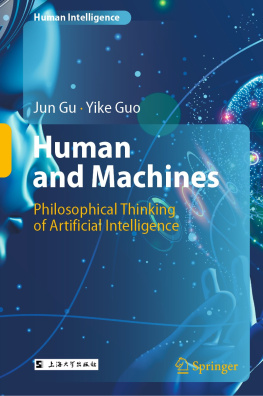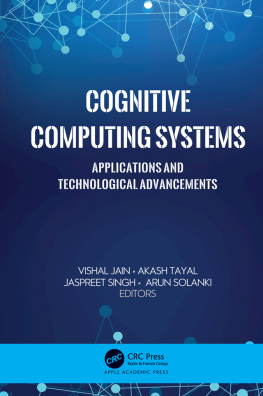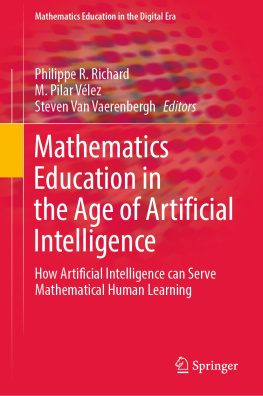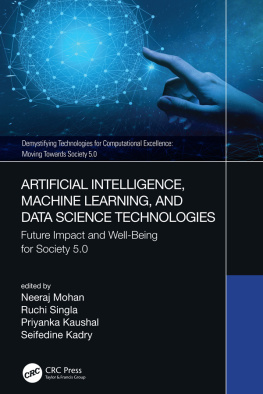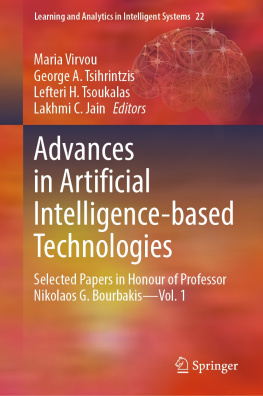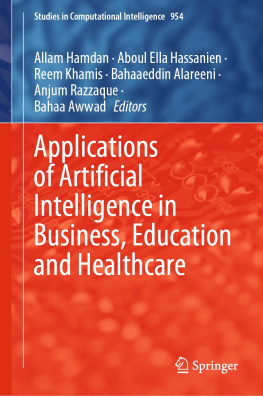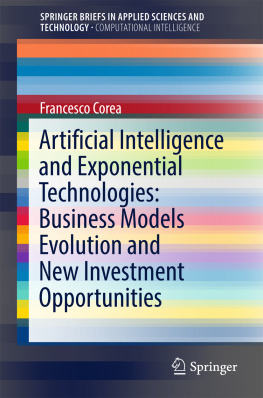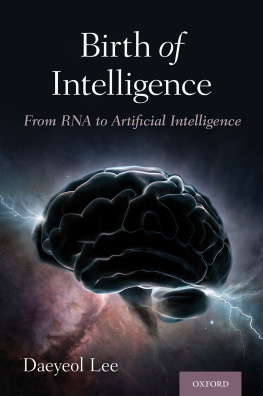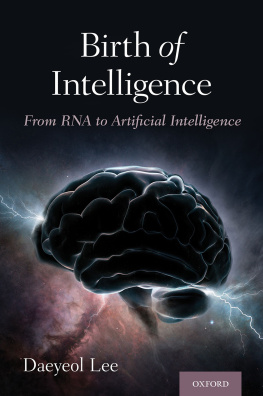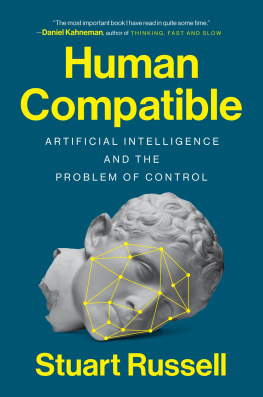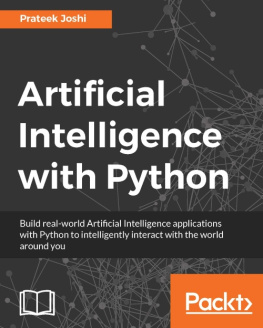Artificial Intelligence and its Impact on Business
A Volume in:
Contemporary Perspectives in Corporate Social Performance and Policy
Series Editor
Agata Stachowicz-Stanusch
Contemporary Perspectives in Corporate Social Performance and Policy
Series Editor
Agata Stachowicz-Stanusch
Silesian University of Technology, Poland
Mastering Anti-Corruption: The Practitioners View (2019)
Agata Stachowicz-Stanusch & Wolfgang Amann
The Social Issue in Contemporary Society:
Relations Between Companies, Public Administrations and People (2019)
Agata Stachowicz-Stanusch & Lorenzo Mercurio
Academic Social Responsibility:
Sine Qua Non for Corporate Social Performance (2018)
Agata Stachowicz-Stanusch & Wolfgang Amann
Management Education for Corporate Social Performance (2018)
Agata Stachowicz-Stanusch & Wolfgang Amann
Contemporary Perspectives in Corporate Social Performance and Policy:
The Middle Eastern Perspective (2018)
Agata Stachowicz-Stanusch & Wolfgang Amann
Fostering Sustainability by Management Education (2017)
Agata Stachowicz-Stanusch & Wolfgang Amann
Organizational Social Irresponsibility: Tools and Theoretical Insights (2017)
Agata Stachowicz-Stanusch, Gianluigi Mangia, Adele Caldarelli, & Wolfgang Amann
Corporate Social Irresponsibility: Individual Behaviors and Organizational Practices (2017)
Agata Stachowicz-Stanusch, Wolfgang Amann, & Gianluigi Mangia
Corporate Social Performance: Reflecting on the Past and Investing in the Future (2016)
Agata Stachowicz-Stanusch
Corporate Social Performance in the Age of Irresponsibility: Cross National Perspective (2016)
Agata Stachowicz-Stanusch
Corporate Social Performance: Paradoxes, Pitfalls and Pathways To The Better World (2015)
Agata Stachowicz-Stanusch
Artificial Intelligence and its Impact on Business
Edited by
Wolfgang Amann
Agata Stachowicz-Stanusch
INFORMATION AGE PUBLISHING, INC.
Charlotte, NC www.infoagepub.com
Copyright 2020 Information Age Publishing Inc.
All rights reserved. No part of this publication may be reproduced, stored in a retrieval system, or transmitted, in any form or by any means, electronic, mechanical, photocopying, microfilming, recording or otherwise, without written permission from the publisher.
Printed in the United States of America
Library of Congress Cataloging-In-Publication Data
The CIP data for this book can be found on the Library of Congress website (loc.gov).
Paperback: 9781648020735
Hardcover: 9781648020742
E-Book: 9781648020759
Contents
Part I
Introduction
.
Agata Stachowicz-Stanusch and Wolfgang Amann
Part II
The Impact of Artificial Intelligence
on the Business World: The Challenges
. How Will AI Change/Impact Management and
Business World17
Li-Hwa Hung and Kuo-Shun Sun
. Should We Fear Artificial Intelligence?39
Athanasios Chymis
. In the AI Era, Soft Skills are the New Hard Skills55
Niva Dolev and Yariv Itzkovich
. Artificial Intelligence in the Industry 4.0:
Aneta Aleksander
Part III
The Impact of Artificial Intelligence on Business World: The Implications
. Subjectivity of the Dyadic Relationship Human-Robot in the Light of Intentional Stance: Implications For Performing
Knowledge-Based Work93
Agnieszka Wojtczuk-Turek
. An AI and Robotic World:
Duane Windsor
. Integrating Artificial Intelligence Concepts into Traditional University Business Management Programs143
Marjorie L. McInerney and Marc Sollosy
. Digital-Era Governance:
Filomena Buonocore, Paola Briganti,
Davide de Gennaro and Luisa Varriale
. Organizational Innovation in Healthcare:
Stefania De Simone and Andrea Tomo
About the Editors and Contributors201
v
vi CONTENTS
Part I
Introduction
CHAPTER 1
Should We Be Afraid of Artificial Intelligence?
Towards Understanding, Consciousness and Responsibility of Artificial Intelligence
Agata Stachowicz-Stanusch and Wolfgang Amann
One can imagine such technology outsmarting financial markets, out-inventing human researchers, out-manipulating human leaders, and developing weapons we cannot even understand. Whereas the short-term impact of AI depends on who controls it, the long-term impact depends on whether it can be controlled at all.
- Stephen Hawking
The most important skills to have in life are gained through interpersonal experiences and the liberal arts. Human bodies in close proximity to other human bodies stimulate real compassion, empathy, vulnerability and social-emotional intelligence.
These skills, interestingly, are the skills specific to human beings that machines and robots cannot do
- Frank Elavsky
Introduction
In 2016 I had a pleasure to publish with prof. Charles Wankel a book entitled Emerging WEB3.0. Semantic Web applications in higher education. In that time, I asked myself a question: is the time of machines (or the time of artificial intelligence AI) in business world and in management education the nearest future or maybe it is an unspecified horizon?
Only 3 years later I am sure that fourth industrial revolution (or the time of artificial intelligence) is a time we are living in. Artificial intelligence is everywhere, it is one of the most popular, promising, intriguing term in business and education world. Artificial intelligence is how Google ranks pages, Booking.com knows what you like and where you would like to go for holidays, Amazon knows what kind of products you like, bots like Siri chat, and computers play Chess and Go.
AI technologies are one of top investment priorities in these days. According to a Gartner report about the Top 10 Strategic Technology Trends for 2019 by 2021, 10% of new vehicles will have autonomous driving capabilities, compared with less than 1% in 2018,through 2020, the number of citizen data scientists will grow five times faster than the number of expert data scientists. Experts anticipate that by 2022, at least 40% of new application development projects will have artificial intelligence co-developers on the team and through 2028, storage, computing, and advanced AI and analytics technologies will expand the capabilities of edge devices. Based on the Boston Consulting Group and MIT Sloan Management Review study published in 2017, 72% of respondents in the technology, media, and telecommunications industry expect AI to have a significant impact on product offerings in the next five years, more than 80% believe that AI will enable them to obtain or sustain a competitive advantage (Forbes, 2017).
Technology has always affected work and society, however what is known as the fourth industrial revolution (or the time of artificial intelligence) threatens to replace human productivity altogether. By the synergistically work of artificial intelligence, robotics, nanotechnology, 3D printing and biotechnology the fourth industrial revolution may replace not only human hands but also human brains. As a result of this perfect storm of technologies, the fourth industrial revolution is paving the way for transformative changes in the way we live and radically disrupting almost every business sector. Its all happening at an unprecedented, whirlwind pace (McGinnis, 2018).
As robotics continues to evolve and computer programming advances, machines may one day become the most advanced lifeform on the planet. Robots are already stronger than humans. They process millions of tasks per second. When AIs can finally think and learn for themselves, whats going to keep them from thinking theyre the ones that should be leading? According to the BBC, Stephen Hawking said humans are limited by biological evolution and would be quickly superseded by AI evolution. How many science fiction movies are about robots going beyond their programming and trying to eliminate people? (Cooper, 2017).
Next page

